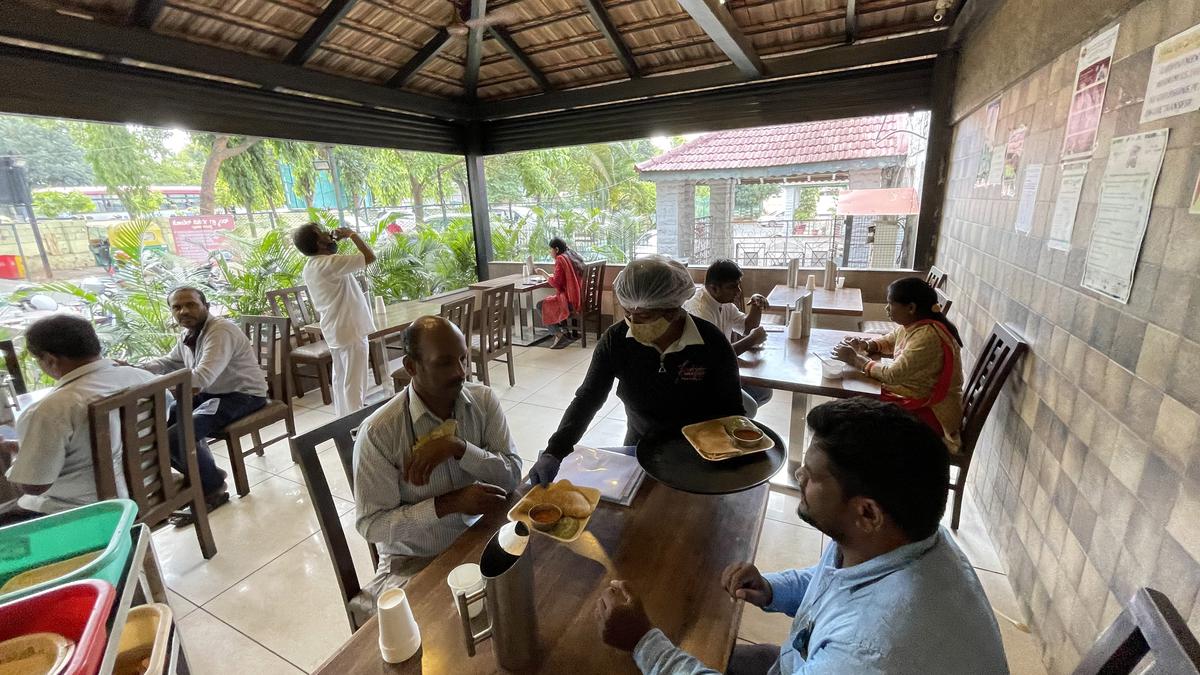
With soaring prices, hoteliers say hiking prices of food items is inevitable Premium
The Hindu
The surge in power tariffs and the cost of groceries and vegetables has prompted numerous establishments in Bengaluru to consider adjusting the prices accordingly in the first week.
Bengalureans may soon find themselves compelled to enhance their culinary expertise, as the prices of dishes served at eateries, and restaurants are expected to rise in the near future. The surge in power tariffs and the cost of groceries and vegetables have prompted numerous establishments in Bengaluru to consider adjusting the prices accordingly in the first week.
“The price of regularly used groceries like toor dal, rice, chillies, and jeera have already gone up. With no guarantee of good rain this monsoon, prices of many other commodities may also go up. The Karnataka Milk Federation (KMF) may increase the price of milk as there is a proposal, and the BWSSB also has proposed to increase the water tariff by a certain percentage. A meeting of our association is scheduled to happen on July 6, and we will have clarity on it by then,” said P.C. Rao, president of Bruhat Bengaluru Hotel Association.
Talking to The Hindu, Rithuparana Sharma, who runs S.N. Refreshments, a family-run business in J.P. Nagar, says food prices had to be hiked to maintain the quality and for long-term sustainability.
“We are forced to raise the price of the food to match the expenses incurred with the high-power tariff and expensive groceries. We cannot cut down on the quality by buying cheaper groceries. To maintain long-term sustainability and quality, we have to make this move. We have not increased the price of food like idli, dosa or rice bath that is consumed by a large number of customers. However, we have increased the price of dishes like khara bhath and uddin vade to balance the expenses.”
Hemanth Shetty, who, along with his father, runs Shri Ganesh Upahar in Banashankari, says they will not increase the price of food served at their restaurants to not lose regular customers and have a new business strategy.
“The increase in power tariff and price of groceries will take a toll on the business. However, we have a regular set of customers, and we would like to retain it. If we increase the price of food, customers will prefer to go to smaller and cheaper restaurants.”
Meanwhile, hotel-goers are not a happy lot. Manjunath Sharma, a resident of Jayanagar, who regularly goes to restaurants, says food is already expensive in the area. “Restaurants made a huge hike after COVID. The price of coffee which was ₹10 has gone up to ₹15 in many restaurants. Many other dishes have also got costlier. This will take a huge toll on the working class.”











